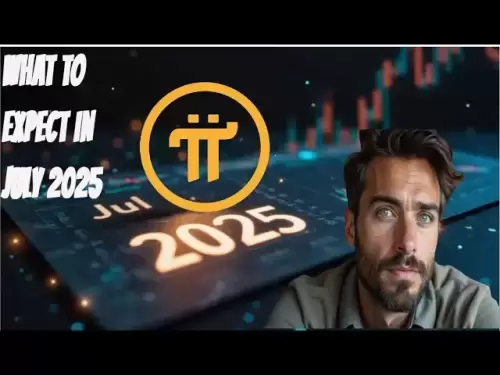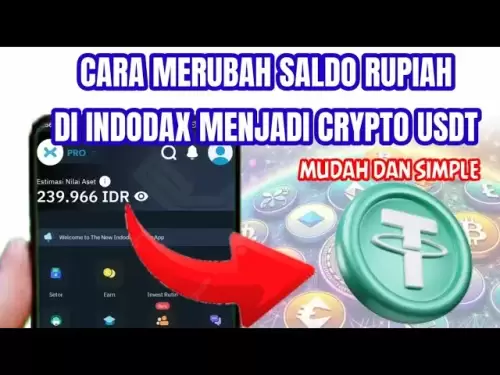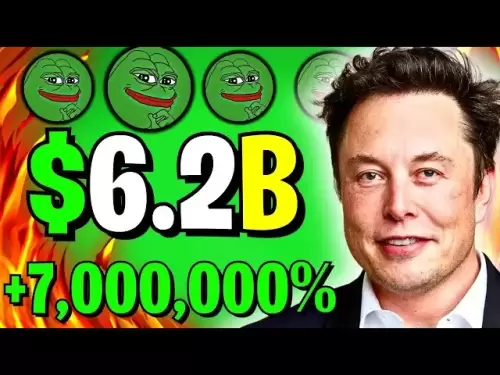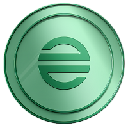-
 Bitcoin
Bitcoin $107,443.3008
-1.17% -
 Ethereum
Ethereum $2,494.2503
-0.63% -
 Tether USDt
Tether USDt $1.0003
0.00% -
 XRP
XRP $2.2496
2.23% -
 BNB
BNB $658.7569
0.63% -
 Solana
Solana $154.9826
1.94% -
 USDC
USDC $1.0000
0.01% -
 TRON
TRON $0.2799
1.07% -
 Dogecoin
Dogecoin $0.1659
-1.78% -
 Cardano
Cardano $0.5745
0.25% -
 Hyperliquid
Hyperliquid $39.7005
0.13% -
 Bitcoin Cash
Bitcoin Cash $519.5989
3.78% -
 Sui
Sui $2.7874
-2.40% -
 Chainlink
Chainlink $13.3762
-1.69% -
 UNUS SED LEO
UNUS SED LEO $9.0784
-0.64% -
 Avalanche
Avalanche $17.9846
-2.81% -
 Stellar
Stellar $0.2390
-0.06% -
 Toncoin
Toncoin $2.9028
0.25% -
 Shiba Inu
Shiba Inu $0.0...01147
-2.17% -
 Litecoin
Litecoin $86.6956
-1.27% -
 Hedera
Hedera $0.1508
-0.50% -
 Monero
Monero $322.6222
3.26% -
 Polkadot
Polkadot $3.4124
-2.99% -
 Dai
Dai $0.9999
0.00% -
 Bitget Token
Bitget Token $4.5434
-1.97% -
 Ethena USDe
Ethena USDe $1.0002
0.00% -
 Uniswap
Uniswap $7.1562
-2.61% -
 Aave
Aave $275.8830
-1.02% -
 Pepe
Pepe $0.0...09790
-4.04% -
 Pi
Pi $0.5018
-5.09%
Does buying and selling ATOM require KYC certification? Is anonymous trading feasible?
ATOM can be traded anonymously on DEXs like Uniswap and Osmosis using non-custodial wallets, but be aware of higher risks and potential legal issues.
May 04, 2025 at 06:49 pm
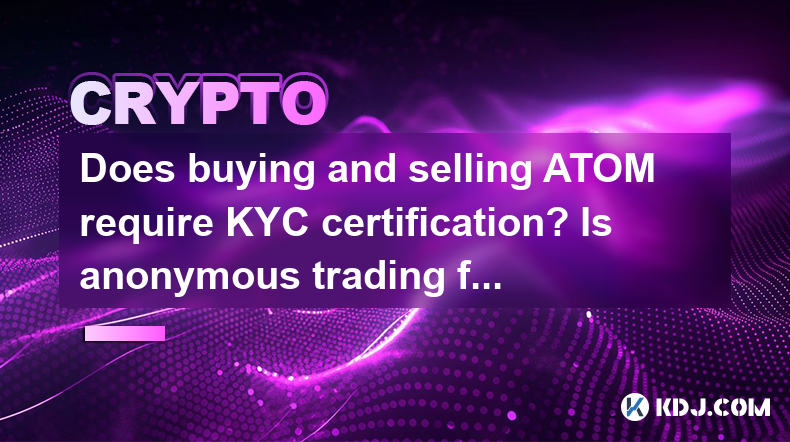
Introduction to ATOM and KYC
ATOM, also known as Cosmos, is a cryptocurrency that aims to solve some of the interoperability issues between different blockchain networks. It's a popular token among crypto enthusiasts who are interested in the broader ecosystem of decentralized finance (DeFi) and blockchain interoperability. When it comes to trading ATOM, one of the key considerations for many users is the requirement for Know Your Customer (KYC) certification. KYC is a process used by financial institutions and crypto exchanges to verify the identity of their clients. The question of whether buying and selling ATOM requires KYC certification, and whether anonymous trading is feasible, is crucial for those who value privacy and security.
KYC Requirements on Major Exchanges
Most major cryptocurrency exchanges, such as Binance, Coinbase, and Kraken, require users to complete KYC verification before they can trade ATOM or any other cryptocurrency. This process typically involves submitting personal identification documents, such as a passport or driver's license, and sometimes proof of address. The rationale behind KYC is to prevent fraud, money laundering, and other illegal activities. Therefore, if you plan to use these platforms to buy or sell ATOM, you will need to go through the KYC process.
Exchanges That Do Not Require KYC
While major exchanges enforce KYC, there are some platforms that allow users to trade ATOM without KYC verification. These platforms often operate in a decentralized manner and are known as Decentralized Exchanges (DEXs). Examples include Uniswap, Sushiswap, and Osmosis. These DEXs enable users to trade directly from their wallets without the need to provide personal information. However, it's important to note that trading on DEXs can come with its own set of risks, such as higher slippage and potential smart contract vulnerabilities.
How to Buy ATOM Anonymously
If you're interested in buying ATOM anonymously, you can follow these steps using a DEX:
- Choose a DEX: Select a DEX that supports ATOM trading, such as Uniswap or Osmosis.
- Connect Your Wallet: Use a non-custodial wallet like MetaMask or Keplr to connect to the DEX. Ensure that your wallet is funded with a cryptocurrency that can be swapped for ATOM, such as Ethereum or another compatible token.
- Swap for ATOM: Navigate to the swap section of the DEX, select the token you want to swap (e.g., Ethereum), and enter the amount you wish to exchange for ATOM. Confirm the transaction in your wallet.
- Receive ATOM: Once the transaction is confirmed on the blockchain, the ATOM will be sent to your wallet address.
How to Sell ATOM Anonymously
Selling ATOM anonymously follows a similar process:
- Choose a DEX: Again, select a DEX that supports ATOM trading.
- Connect Your Wallet: Use the same non-custodial wallet to connect to the DEX.
- Swap ATOM for Another Token: Navigate to the swap section, select ATOM as the token you want to sell, and choose the token you want to receive in exchange. Enter the amount of ATOM you wish to sell and confirm the transaction in your wallet.
- Receive the New Token: Once the transaction is confirmed, the new token will be sent to your wallet address.
Risks and Considerations of Anonymous Trading
While trading ATOM anonymously can offer greater privacy, it's important to be aware of the potential risks. Decentralized exchanges are not regulated in the same way as centralized exchanges, which means there is less protection against fraud and scams. Additionally, the liquidity on DEXs can be lower, which may result in higher slippage and less favorable trading conditions. It's also worth noting that while you may be able to trade anonymously, the blockchain itself is public, meaning that transactions can be traced back to your wallet address.
Frequently Asked Questions
Q: Can I use a VPN to trade ATOM anonymously on centralized exchanges?
A: Using a VPN can help mask your IP address, but it does not bypass the KYC requirements of centralized exchanges. You will still need to provide personal identification to trade on these platforms.
Q: Are there any legal risks associated with trading ATOM anonymously?
A: The legality of anonymous trading can vary by jurisdiction. In some countries, it may be illegal to trade cryptocurrencies without KYC, while in others, it may be permissible. It's important to check the regulations in your area before engaging in anonymous trading.
Q: Can I use privacy-focused cryptocurrencies to buy ATOM anonymously?
A: Yes, you can use privacy-focused cryptocurrencies like Monero (XMR) or Zcash (ZEC) to buy ATOM on certain DEXs that support these tokens. This can add an additional layer of anonymity to your transactions.
Q: How can I protect my privacy when trading ATOM on DEXs?
A: To protect your privacy, use a new wallet address for each transaction, avoid reusing addresses, and consider using privacy-focused cryptocurrencies. Additionally, be cautious about sharing your wallet addresses publicly and use strong security measures to protect your wallet.
Disclaimer:info@kdj.com
The information provided is not trading advice. kdj.com does not assume any responsibility for any investments made based on the information provided in this article. Cryptocurrencies are highly volatile and it is highly recommended that you invest with caution after thorough research!
If you believe that the content used on this website infringes your copyright, please contact us immediately (info@kdj.com) and we will delete it promptly.
- Donald Trump, TRUMP Memecoin, and the Latest Move: A New York Perspective
- 2025-07-01 17:10:12
- Cardano, Solana, XRP: Navigating the Crypto Seas in Q3 2025
- 2025-07-01 16:30:12
- Bitcoin Holders and the Price Hold: What's the Deal?
- 2025-07-01 16:50:26
- ChatGPT, Crypto Trading, and a $100K Profit: AI's Edge in the Wild West
- 2025-07-01 16:30:12
- Mutuum Finance Presale vs. Dogecoin: A New Challenger Approaches?
- 2025-07-01 16:50:26
- Memecoins to Buy in July 2025: Riding the Hype Wave
- 2025-07-01 17:10:12
Related knowledge

How to customize USDT TRC20 mining fees? Flexible adjustment tutorial
Jun 13,2025 at 01:42am
Understanding USDT TRC20 Mining FeesMining fees on the TRON (TRC20) network are essential for processing transactions. Unlike Bitcoin or Ethereum, where miners directly validate transactions, TRON uses a delegated proof-of-stake (DPoS) mechanism. However, users still need to pay bandwidth and energy fees, which are collectively referred to as 'mining fe...

USDT TRC20 transaction is stuck? Solution summary
Jun 14,2025 at 11:15pm
Understanding USDT TRC20 TransactionsWhen users mention that a USDT TRC20 transaction is stuck, they typically refer to a situation where the transfer of Tether (USDT) on the TRON blockchain has not been confirmed for an extended period. This issue may arise due to various reasons such as network congestion, insufficient transaction fees, or wallet-rela...

How to cancel USDT TRC20 unconfirmed transactions? Operation guide
Jun 13,2025 at 11:01pm
Understanding USDT TRC20 Unconfirmed TransactionsWhen dealing with USDT TRC20 transactions, it’s crucial to understand what an unconfirmed transaction means. An unconfirmed transaction is one that has been broadcasted to the blockchain network but hasn’t yet been included in a block. This typically occurs due to low transaction fees or network congestio...

How to check USDT TRC20 balance? Introduction to multiple query methods
Jun 21,2025 at 02:42am
Understanding USDT TRC20 and Its ImportanceUSDT (Tether) is one of the most widely used stablecoins in the cryptocurrency market. It exists on multiple blockchain networks, including TRC20, which operates on the Tron (TRX) network. Checking your USDT TRC20 balance accurately is crucial for users who hold or transact with this asset. Whether you're sendi...

What to do if USDT TRC20 transfers are congested? Speed up trading skills
Jun 13,2025 at 09:56am
Understanding USDT TRC20 Transfer CongestionWhen transferring USDT TRC20, users may occasionally experience delays or congestion. This typically occurs due to network overload on the TRON blockchain, which hosts the TRC20 version of Tether. Unlike the ERC20 variant (which runs on Ethereum), TRC20 transactions are generally faster and cheaper, but during...

The relationship between USDT TRC20 and TRON chain: technical background analysis
Jun 12,2025 at 01:28pm
What is USDT TRC20?USDT TRC20 refers to the Tether (USDT) token issued on the TRON blockchain using the TRC-20 standard. Unlike the more commonly known ERC-20 version of USDT (which runs on Ethereum), the TRC-20 variant leverages the TRON network's infrastructure for faster and cheaper transactions. The emergence of this version came as part of Tether’s...

How to customize USDT TRC20 mining fees? Flexible adjustment tutorial
Jun 13,2025 at 01:42am
Understanding USDT TRC20 Mining FeesMining fees on the TRON (TRC20) network are essential for processing transactions. Unlike Bitcoin or Ethereum, where miners directly validate transactions, TRON uses a delegated proof-of-stake (DPoS) mechanism. However, users still need to pay bandwidth and energy fees, which are collectively referred to as 'mining fe...

USDT TRC20 transaction is stuck? Solution summary
Jun 14,2025 at 11:15pm
Understanding USDT TRC20 TransactionsWhen users mention that a USDT TRC20 transaction is stuck, they typically refer to a situation where the transfer of Tether (USDT) on the TRON blockchain has not been confirmed for an extended period. This issue may arise due to various reasons such as network congestion, insufficient transaction fees, or wallet-rela...

How to cancel USDT TRC20 unconfirmed transactions? Operation guide
Jun 13,2025 at 11:01pm
Understanding USDT TRC20 Unconfirmed TransactionsWhen dealing with USDT TRC20 transactions, it’s crucial to understand what an unconfirmed transaction means. An unconfirmed transaction is one that has been broadcasted to the blockchain network but hasn’t yet been included in a block. This typically occurs due to low transaction fees or network congestio...

How to check USDT TRC20 balance? Introduction to multiple query methods
Jun 21,2025 at 02:42am
Understanding USDT TRC20 and Its ImportanceUSDT (Tether) is one of the most widely used stablecoins in the cryptocurrency market. It exists on multiple blockchain networks, including TRC20, which operates on the Tron (TRX) network. Checking your USDT TRC20 balance accurately is crucial for users who hold or transact with this asset. Whether you're sendi...

What to do if USDT TRC20 transfers are congested? Speed up trading skills
Jun 13,2025 at 09:56am
Understanding USDT TRC20 Transfer CongestionWhen transferring USDT TRC20, users may occasionally experience delays or congestion. This typically occurs due to network overload on the TRON blockchain, which hosts the TRC20 version of Tether. Unlike the ERC20 variant (which runs on Ethereum), TRC20 transactions are generally faster and cheaper, but during...

The relationship between USDT TRC20 and TRON chain: technical background analysis
Jun 12,2025 at 01:28pm
What is USDT TRC20?USDT TRC20 refers to the Tether (USDT) token issued on the TRON blockchain using the TRC-20 standard. Unlike the more commonly known ERC-20 version of USDT (which runs on Ethereum), the TRC-20 variant leverages the TRON network's infrastructure for faster and cheaper transactions. The emergence of this version came as part of Tether’s...
See all articles





















